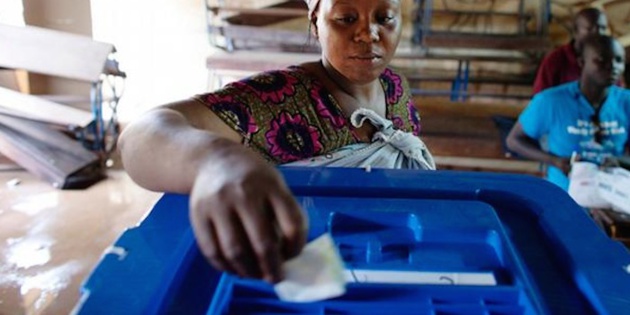Zimbabwe President Emmerson Mnangagwa has started the ball rolling for the 2023 general election that will be held in the last week of August after he gazetted the Delimitation Report, creating new electoral boundaries.
However, the report is said to be flawed by analysts and opposition political parties. The constitution in Zimbabwe says that for any delimitation report to be used in a general election, it should be gazetted at least six months before polling day.
It, therefore, means Zimbabwe will hold the much-anticipated elections any day between the 20th and 26th of August in line with the constitution.
The gazetting of the Delimitation Report was greeted with a lot of screening by civil society organisations and opposition political parties since the electoral body Zimbabwe Electoral Commission (ZEC) failed the test of transparency and accountability in conducting its work.
ZEC said it had 5,804,497 million voters on its roll in August 2022 when it closed the voters roll for delimitation purposes.
However, before it started the delimitation process it did not share the roll with any of the stakeholders so that they could scrutinise it, amidst allegations that ZEC could have inflated voters’ figures in the ruling party Zanu PF’s strongholds – rural constituencies.
In terms of the constitution, section 161 (6) reads: In dividing Zimbabwe into wards and constituencies, the Zimbabwe Electoral Commission must, in respect of any area, give consideration to …… and to give effect to these considerations, the Commission may depart from the requirement that constituencies and wards must have equal numbers of voters, but no constituency or ward of the local authority concerned may have more than twenty percent more or fewer registered voters than the other such constituencies or wards.”
A Zimbabwean constitutional and legal think-tank, Veritas, soon after gazetting of the Delimitation Report wrote a legal opinion that read:
“In our Election Watch 2/2023 of the 9th January, we pointed out that in the preliminary delimitation report, ZEC had used an incorrect formula to calculate the permissible variations in voter numbers between constituencies and wards. Instead of allowing a maximum 20 per cent variation as laid down in section 161(6) of the Constitution, ZEC’s formula allowed variations of up to 40 per cent. It seems from pages ix to xii of the proclamation that ZEC has continued to use this formula for its final delimitation. If that is so, then the delimitation is unconstitutional.”
This comment came in the wake of having constituencies in urban areas having an average of 33 000 voters while some rural constituencies have as low as 22 000 voters. This defeats the purpose of the equality of the vote as the rural vote carries more weight.
The new boundaries in some areas have been designed in a manner that dilutes urban voters. There are many constituencies in Harare metropolitan province that have been joined to rural or peri-urban areas, particularly in the North with parts of rural Mazowe, East with rural Goromonzi, West with rural Zvimba and South with farming areas in Beatrice.
Many analysts see the redrawing of the boundaries as either meant to reduce the opposition’s winning margins in the presidential elections or to take a few urban seats and thus shake the tag that it is a ‘rural’ party.
To make the elections murkier, the Harare High Court this week ruled that the opposition MP Rusty Markham’s application to have the voters roll in electronic format was premature. The court said ZEC should be given time to secure the document before releasing it.
“The applicant approached the court prematurely before exhausting the available remedies. Also, the Electoral Act mandates ZEC to safeguard the electronic voters’ roll,” the court said, adding, “Further the delimitation report is already finalised so the issue has been overtaken by events.”
This is a huge setback for the opposition as it is likely to get the voters’ roll at the eleventh hour thus making it impossible to scrutinise or audit the roll.
This has been a recurrent problem in Zimbabwe since 2000 and the opposition has often gone into elections blind, without knowing how many people will vote and where they reside.
It is not far-fetched to say there will be many election petitions post-voting day as ZEC and the government have been less transparent and accountable in the processes of planning for the 2023 elections.
All eyes are now on Mnangagwa to proclaim the election date and nomination days, setting the scene for an epic fight where the opposition despite the odds of being denied a voters roll, gerrymandered constituencies, limited coverage in the public media and having its rallies banned by police, still hope to spring a surprise.
The poll results will prove how much the delimitation exercise and denial of the voter roll to opposition parties influenced the result. For now, Zimbabwe seems set to have another disputed poll unless some common ground is found among the stakeholders.
Cover Image: File



